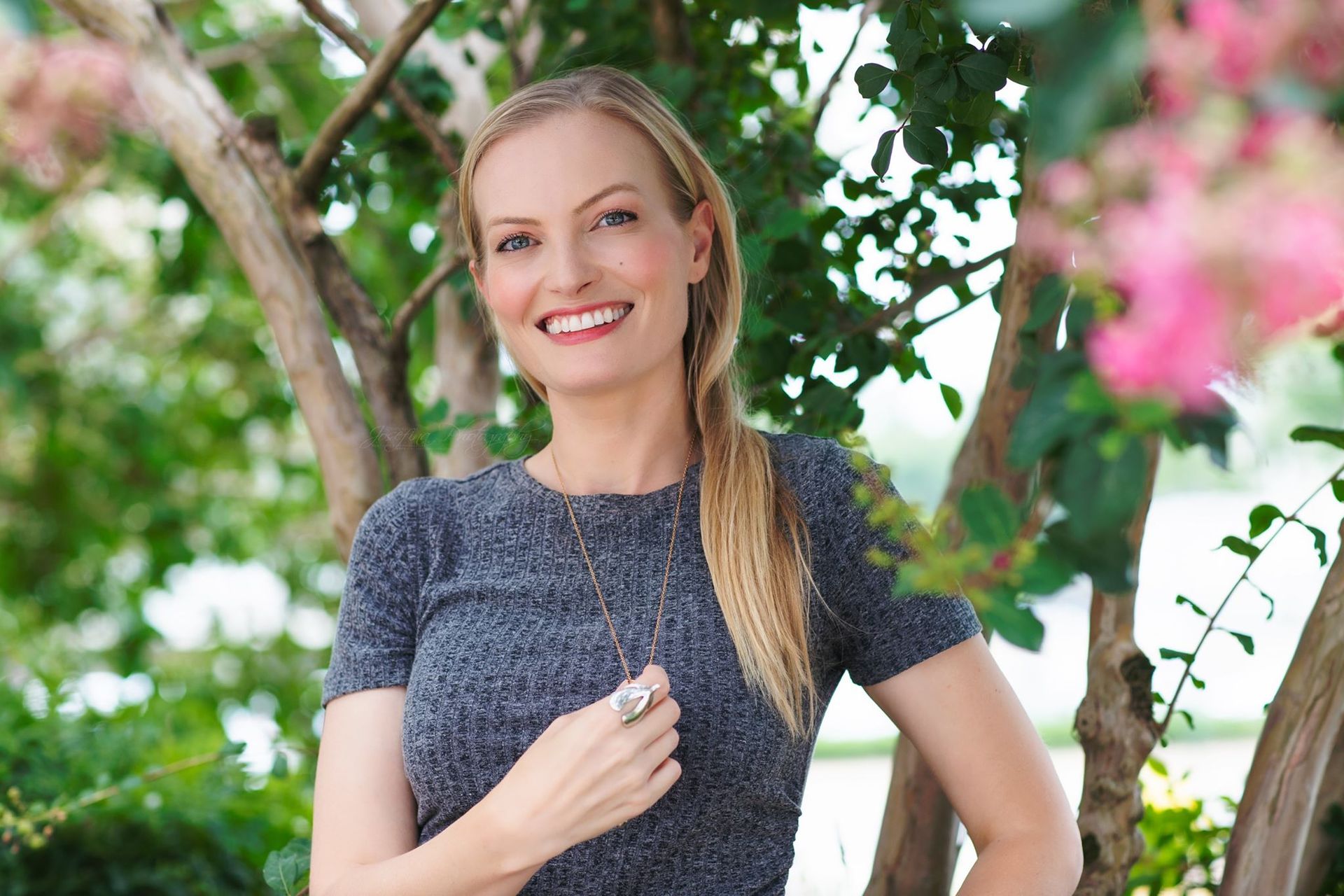Menopause-related changes don’t have to put a damper on your sex life. Here’s what to expect and how to make the most of this phase of your life.
If you’ve gone a full year without a period, congratulations — you’ve officially reached menopause. If you’re not quite feeling celebratory (yet), that’s understandable.
The phase leading up to menopause, also known as the menopausal transition or perimenopause, usually happens gradually between ages 45 and 55, according to the National Institute on Aging, and lasts about seven years. But for some people who menstruate, it lasts as long as 14 years.
While it’s a natural process, having symptoms from hot flashes to sleep problems can feel anything but exciting. Other aspects, though, can feel downright freeing. And your sex life is one arena in which that freedom can shine.
But Isn’t My Sex Life Over?
Menopause does not equal an end to your sex life. That’s the biggest concern that sex and relationships therapist Megan Fleming, PhD, hears about, however. “There is an ageism in our culture with a belief that intimacy, pleasure, and sex are for the young,” she tells DailyOM, noting that a significant number of people experience the best sex of their lives after going through menopause.
“We know from the research of Peggy Kleinplatz, who wrote the book Magnificent Sex, that what actually leads to great sex is being present, focused and embodied connection, extraordinary communication, authenticity, transcendence, risk-taking, and surrender,” Fleming explains. “These are all qualities that older women have had years to develop for themselves and with their partners.”
OB-GYN Heather Bartos, MD, hears similar concerns from her gynecology patients. They ask her “how to keep sex alive, how to keep it exciting, and ‘Am I too old for this?’” she tells DailyOM. But many individuals end up finding sex more pleasurable, not less, as they enter the perimenopausal and menopausal stages.
“A lot of that has to do with freedom from worries about pregnancy,” Bartos notes, and the fact that if you have children, they’re likely to be self-sufficient. You might also reach the peak of your career as menopause sets in, which can be a big confidence booster. “For the first time in maybe forever, you finally feel free and who you truly want to be,” says Bartos, “and that can make sex a lot better.”
Why Is Sex Painful After Menopause?
If you read that bit about better sex around menopause and thought, But wait — sex is painful for me now. How am I supposed to invite incredible sex if I can barely tolerate the sensations involved?
Vaginal dryness is a leading cause of painful penetration leading up to and after menopause, according to Fleming, because of decreases in the hormone estrogen. A study published in Menopause in 2018 that analyzed 17 years of data involving over 2,400 participants showed that vaginal dryness increased from 19.4 percent to 34 percent with age. Being at a late menopausal stage and experiencing surgery-induced menopause (such as due to a hysterectomy) were two of the main links the researchers found.
Estrogen helps keep your vaginal tissues supple and lubricated, which play important roles in arousal and pleasure. “Lubrication reduces friction, [and a lack] is often what causes pain and discomfort,” Fleming adds. To manage that, she recommends experimenting with lubricants during sex and vaginal moisturizers outside of sex, which you apply several times a week.
You might also be a candidate for hormone-replacement therapy for reduced menopause symptoms, sensitive vulva tissue and vaginal dryness included. These measures can be important, given that 50 to 60 percent of postmenopausal people suffer in silence from vulvovaginal atrophy, according to a 2018 International Journal of Women’s Health report. In other words, you don’t have to suffer through painful sex or lack of pleasure and intimacy. Talk to your doctor if signs crop up.
What if My Partner Isn’t Sex-Inclined?
People of all sexes and genders can experience dips in desire around midlife. If your partner’s priorities change or they’re dealing with unmanaged vaginal dryness or erectile dysfunction, for example, their interest in sex may decline. For a man, erectile dysfunction “can really be an ego killer … and all of a sudden there’s a big bunch of sexual discord in the relationship,” Bartos says.
In such cases, Bartos advises her patients, “‘Don’t let the couple run your sexuality,’ meaning if a partner can’t fulfill your desires at the moment, then your pleasure is your own responsibility, not somebody else’s.”
If your sexual interest is high while your partner’s is MIA, “really get into the world of masturbation,” she suggests, “trying out new toys or vibrators.” Speaking alone to a therapist, or together with a couples counselor, can be extremely helpful. If you’re still craving partnered sex and can’t come to a solution with your partner in a sexually exclusive relationship, you and your partner could look into ethical nonmonogamy — or opening your relationship up while abiding by agreed-upon terms. While not the right choice for everyone, “that’s an option these days that 100 years ago, or even 50 or 20 years ago, was completely frowned upon” by many, Bartos notes.
If you’re sex-inclined but don’t have a partner, it might be time to seek one. In a 2020 Pew Research Center study, half of surveyed adults ages 50 to 65 and a quarter of adults over 65 reported seeking to change their single status. And a quick web search now reveals plentiful lists of apps focused on dating after 60. In other words, it’s never too late to meet someone, if you’d like to do so.
What if I Want to Desire Sex, but … Don’t?
If physical pain isn’t an issue for you or you’ve got that handled, yet you still don’t desire sex as much as you would like, Fleming recommends considering a perspective shift.
A significant number of people experience the best sex of their lives after going through menopause.
“Mindset is incredibly important here,” she says. “If we believe we will have less desire and pleasure from sex, we are already inviting that to happen, because what we focus on expands and what we resist persists.” In other words, don’t let stereotypes about sex and aging or menopause become self-fulfilling prophecies.
Your libido concerns might also involve a shift in your desire style from spontaneous desire, which happens in a flash, to a more responsive desire, or desire that occurs as a reaction to something stimulating over a longer buildup. Leading up to and after menopause, “horniness can become less reliable and traditional sex practices can start to be experienced as even more tedious or pressure-filled than previously tolerated,” explains Cyndi Darnell, a sex and relationships therapist and author of Sex When You Don’t Feel Like It: The Truth About Mismatched Libido & Rediscovering Desire.
The Power of Exploration
For people in cis-hetero relationships, penis-in-vagina sex may have been the default, Darnell says, which can pose challenges around menopause if that sex style no longer appeals or feels comfortable. (Darnell believes that queer couples often have an easier time as sexual narratives can be more fluid and less restrictive than in heterosexual culture.) Expanding your ideas about sex can make way for more desire, pleasure, and orgasms.
Fleming agrees that slower-building desire is worth embracing and that exploration is key. With that in mind, she helps menopausal clients “know for themselves the conditions that facilitate their responsive desire so that they can create those conditions.” Creating a context for sex that spurs your desire — whether that involves sexting with your partner for hours or days leading up to sex, playing with a sex toy solo before partnered play, or something else — may well show you that your desire wasn’t missing at all.
This process might seem daunting at first, especially if you’ve felt stuck in a rut for some time, never learned about different desire types, or internalized society’s often-judgmental attitude around sexual freedom and exploration. So practice self-compassion and know that gradual efforts and baby steps pay off. Or, as Fleming often says, “dip a toe in” rather than heading straight for the deep end.
Interested in learning more? Check out Sex and Intimacy After 40
Understanding Your Sexual Priorities
There’s no right way to behave or feel about sex any time, perimenopause and menopause included. What matters, according to Darnell, is proactively understanding your values.
“You need to decide that sex is important, or not. If it’s not a priority, nothing will change,” she explains. “It’s okay for you to not have sex or give up sex, but be sure you’re giving it up after having checked in with yourself about your motivations. The pressure to be ‘sexually empowered’ can be as detrimental as the shame of feeling like sex is not for you.”
Both positions are valid and they’re not the only stances to take. “Sex and pleasure exist on a spectrum and your desire for sex and [types] of sex change with your body, your experience, and your context,” she adds. “Be curious about your body, its responses, and what creates pleasure in this new body. Be willing to extend yourself mentally, emotionally, and creatively.”
Keeping Your ‘Sexy Pilot Light’ On
If you’re overwhelmed, sleeping poorly, or living with unmanaged stress, sex is less likely to entice or fulfill you — even when you value it. So in addition to tending to your physical and emotional health needs, Fleming recommends keeping your “sexy pilot light” on — meaning keeping your erotic interests in mind and nurturing your own pleasure, including nonsexual pleasure — to invite great sex around menopause.
Meanwhile, let yourself fantasize.
“The biggest sex organ is the mind and there is no limit to the erotic imagination,” she notes. “We have the ability to be actively turning ourselves on and off as much as our partners do. We get to simmer so that we aren’t getting ourselves turned on for sex, but are living a turned-on life.” So rather than wait for a partner to rev your sexual appetite, consistently fuel your own.
Claiming Your Own ‘Sexy’
As you move toward and through menopause, Bartos recommends keeping the adage “If you don’t use it, you lose it” in mind. “It’s very easy to get stuck in inertia where you’re just like, I don’t really miss it,” she says of dry spells. “The more we ‘use it,’ in terms of orgasms, sex, and masturbation, the more blood flow stays rich in the vagina, which can keep it moisturized and healthy.”
Bartos also recommends “finding your own sexy.” She explains, “‘Sexy’ is not limited to 25-year-olds or a Kardashian. Anyone can feel sexy, and a lot of women feel sexier once they feel they are authentically themselves. So write out what it is you want at this point. Menopause is a chance to kind of reevaluate the game at halftime and see where you wanna go and score next.”

